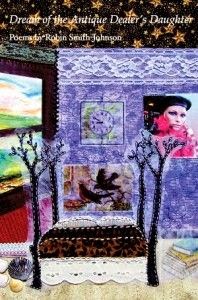One of the advantages of being a writer is that
sometimes you get to critique other people’s work. It is a responsibility and a
learning opportunity. Recently I was asked to be one of three poetry judges for
the PrimeTIme Cape Cod Magazine. This contest is open to writers 45 and older.
When Erin Healy, the magazine’s editor, handed me the big manilla folder, I was
anxious to get started reading the entries.
I picked a quiet
weekend morning to begin leafing through the stack of poems.. With coffee in
hand, I settled into a comfy chair and read through the 75 or so entries. I was
able to immediately put half of the entries into a discard pile. Many of these
poems dealt with abstractions, had simplistic rhyme schemes, or were didactic. I
used a big binder clip for the maybe/almost there/yes pile. I was drawn to
poems that had an original voice, used interesting language, and moved me in
some way. Somehow, the best poems had a resonance that stayed with me in the
hours after my initial reading..
Since we were
meeting at noon on Saturday, Feb. 28, I needed to be ready. A few days before
the judging, I pulled out the clipped poems. I read through each poem
carefully. Our judging ballot listed ten choices and we were asked to order the
best poems from 10 (being the best) to 1 (being the weakest). I had
seventeen possible winners, but I had to narrow these down. The best poems were
obvious choices, but beyond that I had to choose between several that had merit
but weren’t as strong as the frontrunners. After much soul searching, I had my
list of ten poems and on scratch paper, I listed five honorable mentions. The
final two poems seemed slight so I added them to the discard pile.
Our judging
session at the Times was a great time with poets Peter Saunders and Kathleen
Baker, both from the lower Cape. I have known Peter for many years, so it was
nice reconnecting with him. Kathleen was outgoing and positive. I liked her
immediately. Erin served as our moderator and cheerleader. She also provided us lunch (thanks, Erin). We went back and forth on the strengths and weaknesses of our top
choices for almost three hours, but in the end we had our three top winners and
three honorable mentions. Interestingly, we all agreed on the winning poem. It
was clearly the best of the bunch.
This experience
was a good one for me. Sometimes I like to step back and analyze another poet’s
work. I have also been asked to judge the Emerson College poetry contest as
part of their annual Evvy awards competition. According to the Evvy website, it
is the “largest student-run production multi-camera award show in the nation.”
I’m looking forward to this new challenge next month!



Judging poetry is clearly a subjective endeavor. Sadly, poetry judges and the vast majority of poets tend overwhelmingly to avoid poetry that dares criticize, that dares take risks, that dares, in the words of Emerson, "go upright and vital and speak the rude truth in all ways." Thus, is the sad state of literature in America today, thanks largely to academic gatekeepers and indoctrinators. Criticize the latter in a poem and be ostracized. That has certainly been my experience as a poet. Sadly, such gatekeepers have little if any respect for freedom of expression and vigorous debate, democracy's cornerstones. Now, will this simple statement be censored by poetry judge Robin Smith-Johnson?
ReplyDeleteG. Tod Slone, PhD (universite de Nantes, FR) aka P. Maudit,
Founding Editor (1998)
The American Dissident, a 501c3 Nonprofit Journal of Literature, Democracy, and Dissidence
www.theamericandissident.org
wwwtheamericandissidentorg.blogspot.com
todslone@hotmail.com
217 Commerce Rd.
Barnstable, MA 02630